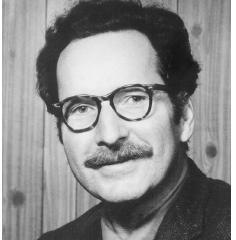Wise Quotes - Page 118
William Shakespeare, Anthony B. Dawson (2003). “Troilus and Cressida”, p.118, Cambridge University Press
When a wise man gives thee better counsel, give me mine again.
William Shakespeare (1790). “The Plays and Poems of William Shakspeare: Timon of Athens. Troilus and Cressida. Cymbeline. King Lear. Vol. 8”, p.562
'Richard III' (1591) act 3, sc. 1, l. 79
William Ralph Inge (1927). “The church in the world: collected essays”, Ayer Co Pub
Look wise, say nothing, and grunt. Speech was given to conceal thought.
Sir William Osler, Mark E. Silverman, T. J. Murray, Charles S. Bryan, American College of Physicians--American Society of Internal Medicine (2003). “The Quotable Osler”, p.29, ACP Press
William Makepeace Thackeray (2013). “Delphi Complete Works of William Makepeace Thackeray (Illustrated)”, p.929, Delphi Classics
William Makepeace Thackeray (2005). “The Snobs of England: And, Punch's Prize Novelists”, p.8, University of Michigan Press
William Hazlitt (1837). “Characteristics: in the manner of Rochefoucault's Maxims [by W. Hazlitt].”, p.55
William Hazlitt (1871). “The Round Table. A collection of Essays ... By W. H. and Leigh Hunt”, p.60
William Cowper, Robert Southey, William Harvey (1835). “The Works of William Cowper: Comprising His Poems, Correspondence, and Translations. With a Life of the Author”, p.213
William Butler Yeats (2010). “The Collected Works of W.B. Yeats Vol X: Later Article: Uncollected Articles, Reviews, and Radio Broadcasts Written After 1900”, p.169, Simon and Schuster
William Blake (1988). “William Blake”, Oxford University Press, USA
'Jerusalem' (1815) 'Chapter 4' (plate 91, l. 54)
Scandal is the sport of its authors, the dread of fools, and the contempt of the wise.
William Benton Clulow (1843). “Aphorisms and Reflections: A Miscellany of Thought and Opinion”, p.137
Wendy Mass (2008). “Jeremy Fink and the meaning of life”
Walter Savage Landor (1853). “The Works of Walter Savage Landor”, p.101
The writing of the wise are the only riches our posterity cannot squander.
Walter Savage Landor, John Forster, Charles George Crump (1891). “Imaginary Conversations: Dialogues of sovereigns and statesmen. Dialogues of literary men”
Walter Savage Landor (1824). “Imaginary Conversations of Literary Men and Statesmen: Richard I and the Abbot of Boxley. The Lord Brooke and Sir Philip Sidney. King Henry IV and Sir Arnold Savage. Southey and Porson. Oliver Cromwel and Walter Noble. Aeschines and Phocion. Queen Elizabeth and Cecil. King James I and Isaac Casaubon. Marchese Pallavicini and Walter Landor. General Kleber and some French officers. Bonaparte and the president of the senate. Bishop Burnet and Humphrey Hardcastle. Peter Leopold and the President Du”, p.16
Sir Walter Raleigh (1687). “The History of the World, in Five Books”, p.3
"Democratic Vistas And Other Papers".







